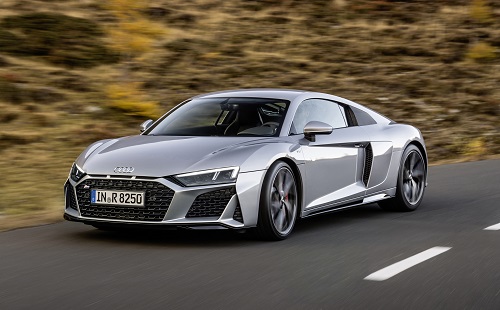Rumbles as court kicks off hearing on emission control in Germany

Anja Semmelroch, dpa I Monday, May 8, 2023
BERLIN – A decision from Germany’s Federal Court of Justice (BGH) could determine whether carmakers will be threatened by a new wave of lawsuits in the diesel scandal.
The Karlsruhe-based court will begin hearing three test cases following a ruling by the European Court of Justice (ECJ) in March that lowered the bar for plaintiffs to sue. It is unclear when the German court will rule.
According to the previous German case law, diesel plaintiffs are entitled to damages if the manufacturer deliberately deceived authorities and customers about pollutant emissions – as Volkswagen (VW) did with its engine EA189 at the centre of the scandal.
In that case, a cheating software was programmed in such a way that millions of cars emitted less toxic exhaust gases in tests than they actually did in road traffic.
But in March, the ECJ lowered the standard considerably. According to its ruling, not just deliberate but even the negligent use of an illegal exhaust technology can be sufficient to trigger claims for damages.
It is now up to the respective EU states to determine how to carry out the ruling. However, the Luxembourg judges point out “that national legislation must not make it practically impossible or excessively difficult to obtain adequate compensation for the damage suffered by the purchaser.”
The ECJ ruling brings many other diesel cars from a wide variety of manufacturers, including those in which the exhaust gas purification system also does not work equally well across the board due to a wide range of functionalities. For some time now, many car buyers have been suing for damages – but so far this has been a difficult undertaking.
Whether the ECJ ruling will bring about a turnaround, however, remains to be seen. Many questions, such as which forms of exhaust technology are inadmissible, remain open. Courts must clarify this in each individual case. Has the buyer suffered any damage as a result of their use? And if so, what kind of damages would be appropriate?
In the VW emissions scandal, those affected were entitled to rescind the purchase. However, the price paid out for the car took into account the car’s depreciation. Older vehicles or those with high mileage, for instance, received little or no compensation.
On the other hand, if a VW owner rescinded the purchase, the vehicle was gone and buying a new one was likely more expensive. So suing was not attractive for everyone. Most court cases therefore ended with a settlement.
In another complication, many functions that are now suspected of being an illegal defeat device were approved by the Federal Motor Transport Authority (KBA), Germany’s auto regulator. The BGH judges also want to deal with the question of whether this approval can be reviewed again by the civil courts or whether it is binding. Manufacturers and customers had relied on it.
The assessments from Karlsruhe are urgently awaited, because due to the unclear legal situation, masses of diesel cases have been left pending in the courts nationwide for months.

